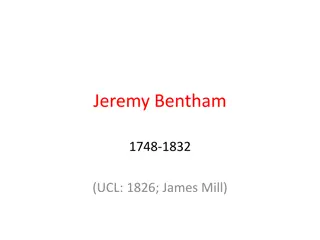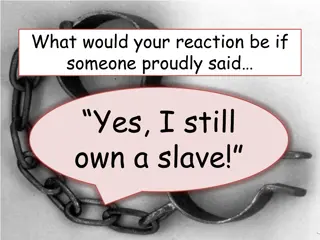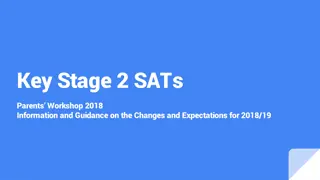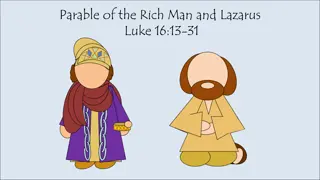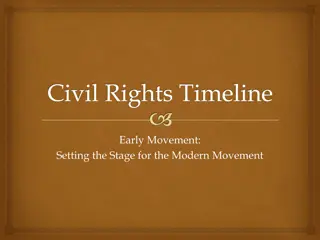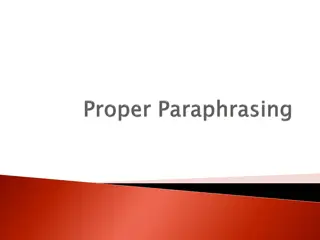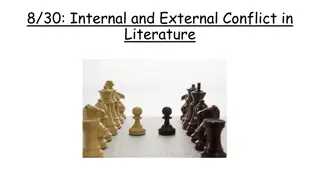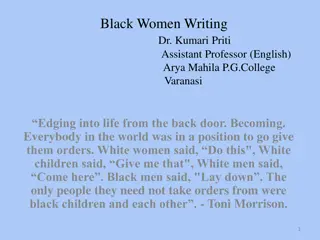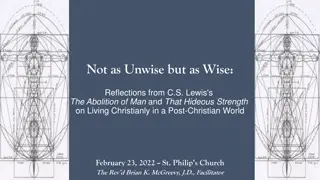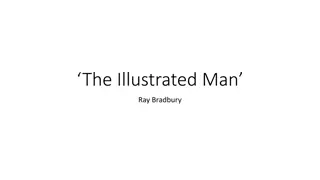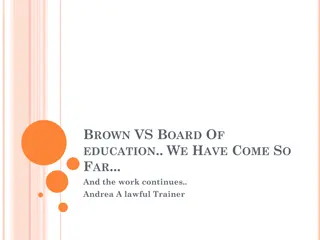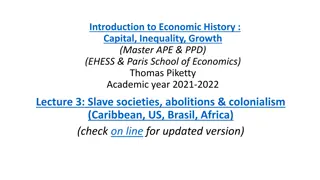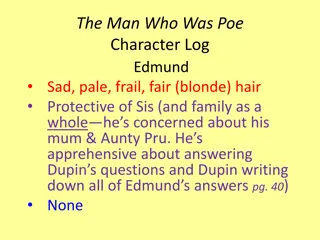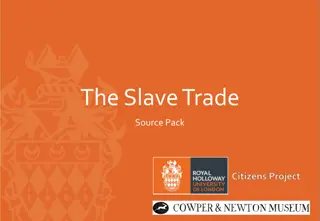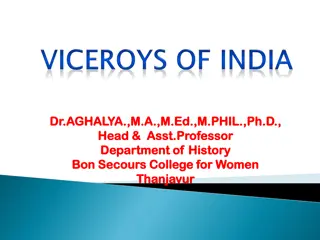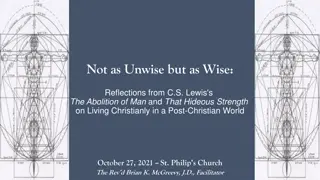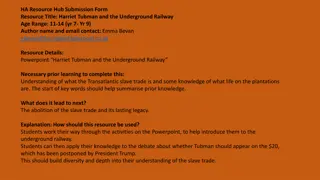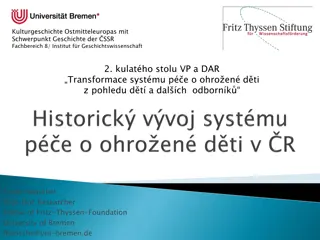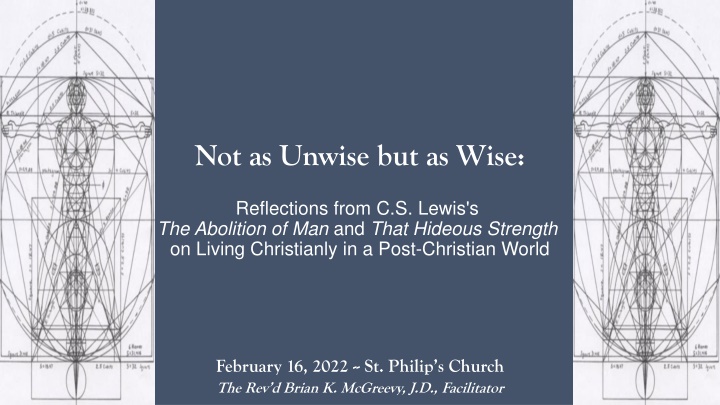
Living Wisely in a Post-Christian World: Insights from C.S. Lewis
Explore reflections from C.S. Lewis's works on living Christianly in a post-Christian world, focusing on key themes such as light vs. darkness and the importance of wisdom. Delve into "The Abolition of Man" and "That Hideous Strength" for a deeper understanding of navigating modern challenges while staying rooted in Christian principles.
Download Presentation

Please find below an Image/Link to download the presentation.
The content on the website is provided AS IS for your information and personal use only. It may not be sold, licensed, or shared on other websites without obtaining consent from the author. If you encounter any issues during the download, it is possible that the publisher has removed the file from their server.
You are allowed to download the files provided on this website for personal or commercial use, subject to the condition that they are used lawfully. All files are the property of their respective owners.
The content on the website is provided AS IS for your information and personal use only. It may not be sold, licensed, or shared on other websites without obtaining consent from the author.
E N D
Presentation Transcript
Not as Unwise but as Wise: Reflections from C.S. Lewis's The Abolition of Man and That Hideous Strength on Living Christianly in a Post-Christian World February 16, 2022 -- St. Philip s Church The Rev d Brian K. McGreevy, J.D., Facilitator
For at one time you were darkness, but now you are light in the Lord. Walk as children of light (for the fruit of light is found in all that is good and right and true), and try to discern what is pleasing to the Lord. Take no part in the unfruitful works of darkness, but instead expose them. For it is shameful even to speak of the things that they do in secret. But when anything is exposed by the light, it becomes visible, for anything that becomes visible is light. Therefore it says, Awake, O sleeper, and arise from the dead, and Christ will shine on you. Look carefully then how you walk, not as unwise but as wise, making the best use of the time, because the days are evil. Therefore do not be foolish, but understand what the will of the Lord is. Ephesians 5: 8-17
How to approach this class: --On the beach --Snorkeling --Scuba diving --Email list How to read That Hideous Strength: --One chapter at a time --Make a chart of characters --Look for and note where themes from The Abolition of Man appear What we ll be doing each week: --Examining context and establishing a framework for appreciating these books --Unpacking the meaning of Lewis s works --Exploring their relevance for today --Considering how we can respond with practices of Hope and of Wisdom rooted in the Scriptures
REVIEW FROM PREVIOUS CLASSES Summary: Main theme of each chapter in The Abolition of Man 1. Men without Chests : The importance of objective values and the poison of subjectivism 2. The Way : Why the Tao, or Natural Law, is the sole source of all value judgments 3. The Abolition of Man : Man s control of Nature is in reality a means for some men (Conditioners) to control other men, using Nature as their instrument. To see through (deconstruct) all things is not to see at all. PLOT SUMMARY OF THE RANSOM TRILOGY Adapted from Taylor Dinerman, The Space Review -- Out of the Silent Planet, tells how Ransom, a Cambridge don on holiday, is kidnapped by the physicist Weston and his partner Devine, a sleazy businessman, and taken to Malacandra (Mars), supposedly as a human sacrifice. Once on Mars he escapes, hides in a Martian village, and learns to speak the local language. He learns that each planet has its own tutelary spirit essentially an angel or archangel called an Oyarsa, who rules under the authority of God. Earth, unfortunately, is the central battleground between Good and Evil and is ruled by a fallen angel, a dark Oyarsa. -- Perelandra, the name Lewis gives to Venus, is also the title of the second book in the series. Retelling the story of Adam and Eve, it is the most explicitly biblical of the three. Weston plays the role of the serpent sent to tempt the woman who is to become the mother of the world into rejecting God s will. Ransom is sent by the Oyarsa to challenge the evil one and to save Venus from the fate of Earth. -- That Hideous Strength combines a sordid tale of intra-university politics, Arthurian legend, and spiritual combat. In a small British University town, one of the colleges finds itself seduced and then engulfed by the newly established National Institute for Coordinated Experiments (N.I.C.E). This organization is secretly controlled by a pair of initiates, who plan to revive the wizard Merlin from his long, enchanted slumber and to use his powers for their own malevolent purposes. To find him they need the services of a seer ; Jane Studdock, the wife of Mark Studdock, a shallow young sociologist entrapped by promises of power, money, and above all membership in the secret, elite clique that controls the N.I.C.E. Ransom leads a small eccentric company of friends who, with the aid of the Oyarsa, take on and defeat them.
The shadow of that hyddeous strength, sax myle and more it is of length (Sir David Lyndsay: from Ane Dialog, describing the Tower of Babel) This is a tall story about devilry, though it has behind it a serious point which I have tried to make in my Abolition of Man. from Preface to That Hideous Strength CHARACTERS IN ORDER OF APPEARANCE --Jane (Tudor) Studdock She had not been to church since her schooldays until she went there six months ago to be married. Jane married Mark six months before the story begins, leaving behind a career she enjoyed. Since then, she works on her doctoral thesis on John Donne, but makes no progress. Before marriage, they had endless talks, but since marriage, she feels alone in solitary confinement. She does not wish for children, as they would impede her career as a scholar. She has nightmares of a man beheaded by having his head twisted off by some other men speaking French. She is disturbed when she sees a picture in a newspaper of precisely what she dreamed. Her dream also includes an ancient bearded Druidical man. Francois Alcasan - An Arabian radiologist who poisoned his wife. He was beheaded for this crime. However, before his execution, Jane sees him in a dream being beheaded by twisting his head off. Jane saw in a man in a dream approach him and speak with him in French (which she did not understand). --Merlin - the ancient Druidical bearded man in a mantle from Arthurian days who also appears in Jane s dream. Merlin has a pagan past but has also been deeply influenced by early British Christianity. -Mark (Gainsby) Studdock - A Fellow in Sociology for 5 years at Bracton College. He talks with Sub-Warden Curry and discovers, to his delight, he is now part of the inner circle, the progressive element. He married his wife Jane six months ago, and they are drifting apart. Mark learns that Lord Feverstone influenced Mark s appointment to Bracton. --
--Sub-Warden Curry - Curry serves as the effective head of Bracton College, who thinks the NICE "marks the beginning of a new era - the really scientific era." Curry wants to cultivate Mark to use him to support his agenda for the college. --James Busby Bursar at Bracton College and another member of the 'Progressive Element . --Canon Jewel A sensible and admired elderly Fellow at Bracton College who is a retired clergyman and a brilliant intellect, but excluded by the 'Progressive Element' for being an 'obstructionist'. --Lord Feverstone - His real name is Dick Divine, who has appeared in the prior stories of the Space Trilogy as a villain. Mark discovers Feverstone as the person responsible for getting his position at Bracton College over another prospect, Denniston. Once Curry and Busby, the Bursar, leave, Mark discovers Feverstone holds them in disdain, but finds them useful in running He joins in cultivating Mark as part of the inner circle of the progressive element in the college. --Arthur Denniston - an old friend of Mark s from university who is also a sociologist and Mark s professional rival. When explaining to Mark why they chose him over Denniston, Sub-Warden Curry says, One sees now that Denniston would never have done. Most emphatically not. A brilliant man at that time, of course, but he seems to have gone quite off the rails since then with all his Distributivism and what not. They tell me he s likely to end up in a monastery. --The Dimbles a professor of English literature at Northumberland College and his wife, with whom Jane Studdock studied and socialized as a college student. The Dimbles live adjacent to Bragdon Wood. --Grace Ironwood The seemingly stern but kind psychologist and doctor who helps Jane interpret her dreams. Inspired by the J rnvi r ("Iron-Wood") of Norse mythology (female giants), her name is softend with the Christian name "Grace". --Ivy Maggs part-time housekeeper for Jane Studdock, who considers her a terrible talker. --John Wither Deputy Director of the N.I.C.E. characterized by vague conversation that is impossible to pin down and a sense of not being fully present; his eyes seem to indicate that he is far away elsewhere. --William Hingest (a.k.a. Bill the Blizzard ) a brilliant scientist from Bracton College who is now employed at the N.I.C.E. but has decided to leave there and warns Mark of the corrupt powers of the N.I.C.E. --Professor Filostrato an eminent Italian physiologist who works for the N.I.C.E. who takes an interest in Mark -- Fairy Hardcastle the aggressive head of the Secret Police of the N.I.C.E.
REVIEW OF CHAPTER 1, SALE OF COLLEGE PROPERTY --Jane and her dreams --Mark and the Inner Circle at Bracton College --The proposal to sell Bragdon Wood and Merlin s Well to the N.I.C.E. --The Dimbles and rumors of Merlin REVIEW OF CHAPTER 2, DINNER WITH THE SUBWARDEN --Mark and being included in Feverstone s confidence in disdain of Curry and Busby --The N.I.C.E. as the ultimate Inner Circle/Ring , focused on taking over and reconditioning the human race, controlling and subduing Nature, and exerting control over the interplanetary wars --Jane s fears and vulnerability, which she later rejects as unworthy --Mark s journey to Belbury and Jane s journey to St. Anne s-on-the-Hill REVIEW OF CHAPTER 3, BELBURY AND ST. ANNE S-ON-THE-HILL --doublespeak at the N.I.C.E.: does Mark have a job or not? Bill Hingest leaving the N.I.C.E. --Jane s visit to St. Anne s and her denial and her aversion to being interfered with --Mark s introduction to Fairy Hardcastle and the role of the N.I.C.E. secret police --Jane s resentment of how much she has had to give up in marriage; Mother Dimble s crisis REVIEW OF CHAPTER 4, THE LIQUIDATION OF ANACHRONISMS --the N.I.C.E. begin turning people out of their homes and destroying Edgestow s beauty --Bill Hingest is murdered the night he leaves the N.I.C.E. --Mark has a strange conversation with the N.I.C.E. mad parson and is assigned a propaganda project on destroying the village of Cure Hardy, only to find he is moved by its beauty --the invasive force of workers from the N.I.C.E. results in partially destroying the beautiful Fellows Room at Bracton
REVIEW OF CHAPTER 5, ELASTICITY --Mark, frustrated by the doublespeak and lack of clarity at the N.I.C.E., attempts a showdown with Wither, the Deputy Director, that does not go well at all, and Mark fears he may not only lose his position at the N.I.C.E. but also his fellowship at Bracton College. --Fairy Hardcastle warns Mark about complaining and offers him project work writing propaganda to rehabilitate the image of Alcasan, the criminal murderer. It becomes clear that the N.I.C.E. intends to operate through threats and coercion. --Meanwhile, Jane spends time with Camilla and Arthur Denniston, learning that they now live at St. Anne's, a community run by Mr. Fisher-King, a renowned man incapacitated by a wounded heel. The Dennistons urge Jane to join their company and use her gift of visions to help them for the good of all. She rebels at the idea of submitting to this Mr. Fisher-King and especially at the necessity of obtaining Mark's permission before she comes. This all goes against her horror of being interfered with and not remaining independent. Jane says for now she won't join but will inform them of any more dreams she has. SUMMARY OF CHAPTER 6 Adapted from Rudy Rentzel An ever-thickening fog envelopes Belbury, the N.I.C.E., Edgestow, and the surrounding countryside where the N.I.C.E. is building new facilities. In sharp contrast, as we find near the end of this chapter, St. Anne's-on-the-Hill stands bathed in sunlight and clear skies, where one can look out above and over the surrounding fog, which covers up the ugly N.I.C.E. construction site. Mark brings an employment contract form back to Wither (the Deputy Director of the N.I.C.E.), but Wither looks back at Mark with a blank stare, saying he understood Mark refused the job, and that he could not offer it again (shocking Mark). After berating Mark about the many quarrels he has had, Wither suggests with reluctance a probationary appointment at a significantly reduced salary, which Mark accepts immediately in desperation. Wither refuses to answer Mark s questions about responsibilities and reporting relationships, instead emphasizing elasticity. elasticity.
Meanwhile, Jane feels better about her dreams, viewing them as news reports, as Denniston had suggested. She has a recurring dream of someone sitting next to her bed with a notebook watching her and taking notes, sitting perfectly still and being patiently attentive. He had pince-nez (glasses), well chiseled features, and a little pointed beard. She says nothing about this to the Dennistons, hoping her silence would result in a visit from them, bringing her hope without having to go to St. Anne s. Working on the project to rehabilitate the criminal Alcasan as requested by Fairy Hardcastle, Mark finds his ego thrilled with the knowledge that his writing is now appearing in several newspapers read by millions (instead of the limited audience for academic writing). He is amazed to discover that if he needs money, all he needs to do is ask the Steward, and funds would be supplied, since the N.I.C.E. is now making the money and plans to take over the whole currency. The N.I.C.E. rewards Mark's success by admission into an inner circle which meets at the library between 10 and midnight, something Mark greatly desires. Professor Frost belongs to this inner circle - a silent man who has pince-nez glasses and a pointed beard. The inner circle informs Mark they plan to cause a riot (which will appear instigated by others) in Edgestow the next day, so they want him to start writing about it all night long so the articles will be ready to be distributed to the papers quickly after the event. The N.I.C.E. planned the riot so as to gain emergency powers to do what they wish, without interference, and with ready acceptance by the populace. Mark is shocked by this plan. However, the inner circle treats his astonishment with jocularity and intimacy, and so Mark goes along with it, never noticing he has agreed to something both immoral and illegal - writing about an event before it occurs, participating in the conspiracy of planning a riot, planning to write a false narrative about it before it occurs, and covering up the true nature and source of the "news item." Mark, enamored with being intimately included in the inner circle, has suppressed whatever moral sensibilities he has.
Mark writes two articles about the riots: one aimed at an educated (academic) audience, and one aimed at the common people. Both praise the response of the N.I.C.E. police to riots (though, in reality, the N.I.C.E. caused the riots), and urge the granting of immediate emergency power to the N.I.C.E. police. Mark, who felt as though he wrote with tongue in cheek (in order to overlook the falsehoods he wrote), feels very satisfied with his writing. He justifies it as a temporary stage the N.I.C.E. must go through. At home, Jane dreams about a very large corpse that she can barely see in the dark and must discover (against her better judgment) by touching. The bearded corpse is clad in a very coarse, heavily embroidered robe, and Jane somehow feels she needs to curtsey to the corpse. Desperate to distract herself, Jane goes into the village to seek a new part-time housekeeper to replace Ivy Maggs, and sees a man with pince-nez glasses and a pointed beard whom she recognizes from her latest dream. When he gets into a N.I.C.E. car, she immediately decides to go to St. Anne's-on-the-Hill, not so much from fear, but from "a total rejection, or revulsion from, this man on all levels of her being at once. KEY PASSAGES IN CHAPTER 6 Wither said he had understood that Mark had already refused the job. He could not, in any event, renew the offer. He spoke vaguely and alarmingly of strains and frictions, of injudicious behaviour, of the danger of making enemies, of the impossibility that the N.I.C.E. could harbour a person who appeared to have quarrelled with all its members in the first week. He spoke even more vaguely and alarmingly of conversations he had had with your colleagues at Bracton which entirely confirmed this view. He doubted if Mark were really suited to a learned career, but disclaimed any intention of giving advice. Only after he had hinted and murmured Mark into a sufficient state of dejection did he throw him, like a bone to a dog, the suggestion of an appointment for a probationary period at roughly (he could not commit the Institute) six hundred a year. And Mark took it. manipulation by power
We are, as I have said before, more like a family, or even, perhaps, like a single personality. There must be no question of taking your orders, from some specified official and considering yourself free to adopt an intransigent attitude to your other colleagues. You must make yourself useful, Mr. Studdock generally useful. I do not think the Institute could allow anyone to remain in it. who showed a disposition to stand on his rights who grudged this or that piece of service because it fell outside some function which he had chosen to circumscribe by as rigid definition. On the other hand, it would be quite equally disastrous if you allowed yourself ever to be distracted from your real work by unauthorised collaboration or, worse still, interference with the work of other members. doublespeak and cognitive dissonance You haven t done anything about Alcasan yet? she asked. No, said Mark, because I hadn t really decided to stay, not until this morning. I could come up and look at your materials this afternoon at least as far as I know, for I haven t yet really found out what I m supposed to be doing. Elasticity, Sonny, elasticity, said Miss Hardcastle. You never will. Your line is to do whatever you re told and above all not to bother the old man. coercive authority The fog, which covered Edgestow as well as Belbury, continued and grew denser. At Edgestow one regarded it as coming up from the river, but in reality it lay all over the heart of England. It blanketed the whole town so that walls dripped and you could write your name in the dampness on tables and men worked by artificial light at midday. The workings, where Bragdon Wood had been, ceased to offend conservative eyes and become mere clangings, thuddings, hootings, shouts, curses, and metallic screams in an invisible world. fog and obscurantism This was still strictly confidential, but the Institute had already powers to force it. This being so, a new adjustment of boundaries between it and the College was clearly needed. Busby s jaw fell when he realised that the Institute wanted to come right up to the College walls. He refused of course. And it was then that he first heard a hint of requisitioning. The College could sell today and the Institute offered a good price: If they did not, compulsion and a merely nominal compensation awaited them. coercive authority
In these days many members of the Progressive Element dropped off and joined the oppositionAnd though the College was thus sharply divided within, yet for the very same reason it also took on a new unity perforce in its relations to the outer world. Bracton as a whole bore the blame for bringing the N.I.C.E. to Edgestow at all. This was unfair, for many high authorities in the University had thoroughly approved Bracton s action in doing so, but now that the result was becoming apparent people refused to remember this. selective memory, denial of responsibility The disturbance in which the Bracton windows had been broken was taken little notice of in the London papers or even in the Edgestow Telegraph. But it was followed by other episodes. There was an indecent assault in one of the mean streets down by the station. There were two beatings up in a public house. There were increasing complaints of threatening and disorderly behaviour on the part of the N.I.C.E. workmen. But these complaints never appeared in the papers. Those who had actually seen ugly incidents were surprised to read in the Telegraph that the new Institute was settling down very comfortably in Edgestow and the most cordial relations developing between it and the natives. Those who had not seen them but only heard of them, finding nothing in the Telegraph, dismissed the stories as rumours or exaggerations. Those who had seen them wrote letters to it, but it did not print their letters. media manipulation, propaganda, violence There s going to be trouble here, was the comment of many a citizen; and in a few days, You d think they wanted trouble. It is not recorded who first said, We need more police. And then at last the Edgestow Telegraph took notice. A shy little article a cloud no bigger than a man s hand appeared suggesting that the local police were quite incapable of dealing with the new population. supplanting the police She knew his face already, and came to know it infinitely well: the pince-nez, the well chiselled, rather white, features, and the little pointed beard it was certainly herself whom he appeared to be studying She had a sort of hope that the longer she kept silent the more likely they would be to come in and see her again. She wanted comfort but she wanted it, if possible, without going out to St. Anne s, without meeting this Fisher-King man and getting drawn into his orbit. comfort without commitment
When was one paid? And in the meantime, he was short of petty cash. He had lost his wallet on his very first night at Belbury and it had never been recovered. O Hara roared with laughter. Sure you can have any money you like by asking the Steward. You mean it s then deducted from one s next cheque? asked Mark. Man, said the Captain, once you re in the Institute, God bless it, you needn t bother your head about that. Aren t we going to take over the whole currency question? It s we that make money. Do you mean? gasped Mark and then paused and added, But they d come down on you for the lot if you left. What do you want to be talking about leaving for at all? said O Hara. No one leaves the Institute. At least, the only one that ever I heard of was old Hingest. economic manipulation, coercive authority Canon Storey took it. His voice was still beautiful, and there was beauty too in his isolation from all that company. He was isolated both by his faith and by his deafness. beauty that shines in darkness The pleasantest of the rewards which fell to Mark for his obedience was admission to the library he had discovered that this room, though nominally public, was in practice reserved for what one had learned, at school, to call bloods and, at Bracton, the Progressive Element. It was on the library hearthrug and during the hours between ten and midnight that the important and confidential talks took place; and that was why, when Feverstone one evening sidled up to Mark in the lounge and said, What about a drink in the library? Mark smiled and agreed and harboured no resentment for the last conversation he had had with Feverstone. If he felt a little contempt of himself for doing so, he repressed and forgot it: that sort of thing was childish and unrealistic. lure of Inner Ring, compromise/ selling out It is all going to happen, here in this world, in the only world there is. What did the Master tell us? Heal the sick, cast out devils, raise the dead. We shall. The Son of Man that is, Man himself, full grown has power to judge the world to distribute life without end, and punishment without end. You shall see. Here and now. It was all very unpleasant. false teaching, false Christ
The disturbances at Edgestow, answered Feverstone. Oh . .. I havent been following them very much. Are they becoming serious? They re going to become serious, Sonny, said the Fairy. And that s the point. The real riot was timed for next week. All this little stuff was only meant to prepare the ground, but it s been going on too well, damn it. The balloon will have to go up tomorrow, or the day after, at latest Mark glanced in bewilderment from her face to Feverstone s. The latter doubled himself up with laughter and Mark, almost automatically, gave a jocular turn to his own bewilderment. I think the penny hasn t dropped, Fairy, he said. You surely didn t imagine, grinned Feverstone, that the Fairy left the initiative with the natives? You mean she herself is the Disturbance? said Mark. Yes, yes, said Filostrato, his little eyes glistening above his fat cheeks You mean you ve engineered the disturbances? said Mark, To do him justice, his mind was reeling from this new revelation. Nor was he aware of any decision to conceal his state of mind: in the snugness and intimacy of that circle he found his facial muscles and his voice, without any conscious volition, taking on the tone of his colleagues. That s a crude way of putting it, said Feverstone. It makes no difference, said Filostrato. This is how things have to be managed. Quite, said Miss Hardcastle. It s always done. Anyone who knows police work will tell you. And as I say, the real thing the big riot must take place within the next forty-eight hours. engineered violence for political ends But what s it all for? Emergency regulations, said Feverstone. You ll never get the powers we want at Edgestow until the Government declares that a state of emergency exists there. Exactly, said Filostrato. It is folly to talk of peaceful revolutions. Not that the canaglia would always resist often they have to be prodded into it but until there is the disturbance, the firing, the barricades no one gets powers to act effectively. There is not enough what you call weigh on the boat to steer him. abuse of emergency powers to abrogate liberties
But how are we to write it tonight if the thing doesnt even happen till tomorrow at the earliest? Everyone burst out laughing. You ll never manage publicity that way, Mark, said Feverstone. You surely don t need to wait for a thing to happen before you tell the story of it! No good, Sonny, said Miss Hardcastle. We ve got to get on with it at once This was the first thing Mark had been asked to do which he himself, before he did it, clearly knew to be criminal. But the moment of his consent almost escaped his notice; certainly, there was no struggle, no sense of turning a corner. There may have been a time in the world s history when such moments fully revealed their gravity, with witches prophesying on a blasted heath or visible Rubicons to be crossed. But, for him, it all slipped past in a chatter of laughter, of that intimate laughter between fellow professionals, which of all earthly powers is strongest to make men do very bad things before they are yet, individually, very bad men. Evil, compromise, and self-deception It is disquieting to be forced to suspect that the old distrust of planned efficiency and the old jealousy of what is ambiguously called Bureaucracy can be so easily (though, we hope, temporarily) revived; though at the same time, this very suspicion, by revealing the gaps and weaknesses in our national level of education, emphasises one of the very diseases which the National Institute exists to cure. That it will cure it we need have no doubt. The will of the nation is behind this magnificent peace-effort, as Mr. Jules so happily described the Institute, and any ill-informed opposition which ventures to try conclusions with it will be, we hope, gently, but certainly firmly, resisted. disdain of resistance We insisted that the complexity of modern society rendered it an anachronism to confine the actual execution of the will of society to a body of men whose real function was the prevention and detection of crime: that the police, in fact, must be relieved sooner or later of that growing body of coercive functions which do not properly fall within their sphere The executive of the N.I.C.E. has no connection with politics; and if it ever comes into relation with criminal justice, it does so in the gracious role of a rescuer a rescuer who can remove the criminal from the harsh sphere of punishment into that of remedial treatment. redefining criminal justice
Ive one bit of advice. If you hear anyone backbiting the N.I.C.E. police, tell him where he gets off. If you hear anyone comparing them to the Gestapo or the Ogpu, tell him you ve heard that one before. If you hear anyone talking about the liberties of England (by which he means the liberties of the obscurantists, the Mrs. Grundies, the Bishops, and the capitalists), watch that man. He s the enemy. Tell him from me that the N.I.C.E. is the boxing glove on the democracy s fist, and if he doesn t like it, he d best get out of the way. liberties as reactionary and stopping progress At the top of Market Street something happened which finally determined her to go to St. Anne s that very day She came to a place where a big car was standing beside the pavement, an N.1.C.E. car. Just as she reached it a man came out of a shop, cut across her path to speak to the chauffeur of the car, and then got in. He was so close to her that, despite the fog, she saw him very clearly She would have known him, anywhere: not Mark s face, not her own face in a mirror, was by now more familiar. She saw the pointed heard, the pince-nez, the face which somehow reminded her of a waxworks face. She had no need to think what she would do. Her body, walking quickly past, seemed of itself to have decided that it was heading for the station and thence for St. Anne s. It was something different from fear (though she was frightened too, almost to the point of nausea) that drove her so unerringly forward. It was a total rejection of, or revulsion from, this man on all levels of her being at once. Dreams sank into insignificance compared with the blinding reality of the man s presence. She shuddered to think that their hands might have touched as she passed him. visceral Evil She wanted to be with Nice people, away from Nasty people that nursery distinction seeming at the moment more important than any later categories of Good and Bad or Friend and Enemy. She was roused from this state by noticing that it was lighter. She looked ahead: surely that bend in the road was more visible than it ought to be in such a fog? Certainly what had been grey was becoming white, almost dazzlingly white. A few yards further and luminous blue was showing overhead, and trees cast shadows (she had not seen a shadow for days), and then all of a sudden the enormous spaces of the sky had become visible and the pale golden sun, and looking back, as she took the turn to the Manor, Jane saw that she was standing on the shore of a little green sun-lit island looking down on a sea of white fog, furrowed and ridged yet level on the whole, which spread as far as she could see. light and beauty and Goodness versus fog and Evil
THEMES THAT APPEAR IN CHAPTER 6 manipulation by power doublespeak and cognitive dissonance coercive authority fog and obscurantism selective memory, denial of responsibility media manipulation, propaganda, violence supplanting the police comfort without commitment economic manipulation, coercive authority beauty that shines in darkness lure of Inner Ring, compromise/ selling out false teaching, false Christ engineered violence for political ends abuse of emergency powers to abrogate liberties Evil, compromise, and self-deception disdain of resistance, redefining criminal justice --liberties as reactionary and stopping progress visceral Evil light and beauty and Goodness versus fog and Evil But I say, walk by the Spirit, and you will not gratify the desires of the flesh. For the desires of the flesh are against the Spirit, and the desires of the Spirit are against the flesh, for these are opposed to each other, to keep you from doing the things you want to do. But if you are led by the Spirit, you are not under the law. Now the works of the flesh are evident: sexual immorality, impurity, sensuality,idolatry, sorcery, enmity, strife, jealousy, fits of anger, rivalries, dissensions, divisions, envy,[drunkenness, orgies, and things like these. I warn you, as I warned you before, that those who do such things will not inherit the kingdom of God. But the fruit of the Spirit is love, joy, peace, patience, kindness, goodness, faithfulness, gentleness, self-control; against such things there is no law. --Galatians 5
Practices of Hope and of Wisdom Finally, brothers, whatever is true, whatever is honorable, whatever is just, whatever is pure, whatever is lovely, whatever is commendable, if there is any excellence, if there is anything worthy of praise, think about these things. What you have learnedand received and heard and seen in me practice these things, and the God of peace will be with you. Philippians 4:8-9 1. Seek always to be true to your faith and its principles. If then you have been raised with Christ, seek the things that are above, where Christ is, seated at the right hand of God. Set your minds on things that are above, not on things that are on earth. For you have died, and your life is hidden with Christ in God. When Christ who is your life appears, then you also will appear with him in glory. Put to death therefore what is earthly in you: sexual immorality, impurity, passion, evil desire, and covetousness, which is idolatry (Col. 3:1-3) 2. Be aware of the power of Beauty and Holiness and seek after them. One thing I have asked from the Lord, that I shall seek: that I may dwell in the house of the Lord all the days of my life, to behold the beauty of the Lord, and to meditate in His temple. (Ps. 27:4) Pursue peace with all people, and holiness, without which no one will see the Lord. (Hebrews 12:14) So flee youthful passions and pursue righteousness, faith, love, and peace, along with those who call on the Lord from a pure heart. (2 Tim. 2:22) And we all, with unveiled face, beholding the glory of the Lord,are being transformed into the same image from one degree of glory to another.For this comes from the Lord who is the Spirit. (2 Cor. 3:18) 3. Stand up for what is right, even when it is costly. Consider him who endured from sinners such hostility against himself, so that you may not grow weary or fainthearted. In your struggle against sin you have not yet resisted to the point of shedding your blood. (Hebrews 12:3-4)Sanctify them in the truth; your word is truth. As you sent me into the world, so I have sent them into the world. And for their sake I consecrate myself, that they also may be sanctified in truth. (John 17:17-18) 4. Flee from Evil in all its manifestations.Do not enter the path of the wicked, and do not walk in the way of the evil. Avoid it; do not go on it; turn away from it and pass on. (Proverbs 4:14-15) But as for you, O man of God, flee these things. Pursue righteousness, godliness, faith, love, steadfastness, gentleness.(I Timothy 6:11)
How Lovely are Thy Dwellings Fair How lovely are Thy dwellings fair, O Lord of Hosts. My soul ever longeth and fainteth sore for the blest courts of the Lord: My heart and flesh do cry to the living God. O blest are they that in Thy house are dwelling: They ever praise Thee, O Lord, for evermore. (1868, Fourth movement of Johannes Brahms Ein deutsches Requiem (Op. 45). The text [originally Wie lieblich sind deine Wohnungen ] is based on Psalm 84)
For at one time you were darkness, but now you are light in the Lord. Walk as children of light (for the fruit of light is found in all that is good and right and true), and try to discern what is pleasing to the Lord. Take no part in the unfruitful works of darkness, but instead expose them. For it is shameful even to speak of the things that they do in secret. But when anything is exposed by the light, it becomes visible, for anything that becomes visible is light. Therefore it says, Awake, O sleeper, and arise from the dead, and Christ will shine on you. Look carefully then how you walk, not as unwise but as wise, making the best use of the time, because the days are evil. Therefore do not be foolish, but understand what the will of the Lord is. Ephesians 5: 8-17

